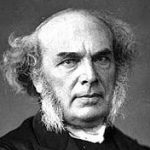Lesson Focus: This lesson can help you rejoice and rely on the Father’s love.
Yahweh Our Father Gives Undeserved Love: Psalm 103:2-6.
[2] Bless the LORD, O my soul, and forget not all his benefits, [3] who forgives all your iniquity, who heals all your diseases, [4] who redeems your life from the pit, who crowns you with steadfast love and mercy, [5] who satisfies you with good so that your youth is renewed like the eagle’s. [6] The LORD works righteousness and justice for all who are oppressed. [ESV]
[2-6] Some psalms are addressed to God, some are spoken to other people – the righteous, sinners, Israel, the Gentile nations, other groups. But in Psalm 103 the psalmist is speaking to himself. He seeks to remind himself of God’s blessings so he will continue to be grateful for all that God has done for him. David is cataloguing the goodness of God; enumerating his blessings, lest in a moment of depression or backsliding, he should forget the source of his prosperity and take God’s grace for granted. In verses 1-2 David tells us how a person should praise God: with all that is within me. In these verses David is rousing himself to remember God’s benefits, and he does not want to do it superficially. He wants to do it with all his heart, with all his soul, and with all his strength. Note the repetition of the word all in these verses: all that is within me … all his benefits … all your iniquity … all your diseases. David wants his praise of God to be full of the knowledge of all that the Lord has done for him and David wants his praise to involve his whole being or soul. It is part of our fallen humanity to forget all that God has done for us. We need to continually remind ourselves of all of God’s blessings and this is what David in telling himself in this psalm. David makes a list of these benefits or blessings from God in verses 3-5. (1) Forgiveness of sins [3]. The first thing David is thankful for is the forgiveness of his sins. This is the greatest of all gifts that we can receive from God, and the first we need to have. It is true that we need to remember to thank God for our homes and jobs and wealth and all our material possessions, the very things the Israelites were reminded to thank God for in Deuteronomy 8:10-14. But where would we be if we were to acquire all these things and lose our souls? The forgiveness of our sins is the greatest benefit any of us can ever receive from God, and we can receive it only because God gave His Son over to death on the cross to procure it for us. Some of the statements that occur in the first part of the psalm appear later too, including this matter of the forgiveness of sins. Verse 3 says that the Lord forgives all your iniquity. This has to do with the number of sins that are forgiven; it is all of them. But then in verse 12 the psalmist elaborates on that by bringing in the scope of the deliverance. To what extent does God forgive sins? He answers as far as the east is from the west, so far does he remove our transgressions from us. Since east and west are directions and not points on the compass there is an infinite, unmeasurable distance between them. This may be what David is thinking. When God forgives us, He puts our sin and us on two different horizons. So when He looks at our sin, He is no longer looking at us, and when He looks at us, He is no longer looking at our sin. (2) Healing [3]. The second thing the writer is thankful for is healing, indeed healing of all your diseases. What does this sentence mean? Believers still get sick and still die. So how has God healed all our diseases? David is not saying that God will heal each and every disease or sickness. But he is saying that those times when we are healed it is the result of God’s work in our lives. God is the healer of our body as well as our soul. Therefore, our good health is a result of God’s blessings upon us and He should be praised for it. How often do we take our good health for granted? David is exhorting himself (and us) to praise God for His work of healing in our physical bodies as well as in our spiritual bodies. (3) Redemption from the pit [4]. When David says that God redeems our lives from the pit, he is saying that God brings us back from the very brink of death. The pit is Sheol, where the dead go when they die. As far as he himself is concerned, he does not mean that God has rescued him from Sheol by taking him to heaven, for he is not in heaven yet. He means that God has redeemed him by sparing him from death. (4) Satisfaction with good things [5]. And it is not a matter of a mere rescue either, as if our lives are spared but so far as anything else is concerned our lives are miserable. No. God satisfies us with good things so that your youth is renewed like the eagle’s. Hasn’t that been your experience? Can’t you praise God for an abundance of good things that He has graciously brought into your life? Here David gives us a practical example to follow in praising God. First, he talks to himself. Rather than depending on habit or events to occasion his praising God, he reminds himself consciously of his duty. Second, he is careful to praise the Giver, not the gifts: Bless the Lord, O my soul, he writes, not “Bless forgiveness” or “Bless healing,” Third, he demands sincerity in his praise. Otherwise it is empty and worthless. Praise must come from his soul, his inmost being, not as a mere outward show like the condemned worship of the formalists [Psalm 50:7-13]. Fourth, his praise must be wholehearted: all that is within me, bless his holy name. He permits no division in his heart, no reservations. Everything must be praise. There is no room for complaint.
Yahweh Our Father Displays Unequaled Love: Psalm 103:8-12.
[8] The LORD is merciful and gracious, slow to anger and abounding in steadfast love. [9] He will not always chide, nor will he keep his anger forever. [10] He does not deal with us according to our sins, nor repay us according to our iniquities. [11] For as high as the heavens are above the earth, so great is his steadfast love toward those who fear him; [12] as far as the east is from the west, so far does he remove our transgressions from us. [ESV]
[8-12] Verses 1-5 of Psalm 103 are so personal that most writers view them as the first stanza of the psalm, noting that from this point on [6-18] the writer seems to be talking about God’s grace to other people, particularly to Israel. Yet what David is actually doing is talking about God Himself, reminding himself and us of what God is like. He is answering the next question that we should ask of this psalm: What is God like that we should praise Him? Here a number of assertions come in: (1) God works righteousness and justice for the oppressed [6]; (2) God is merciful and gracious [8]; (3) He will not always chide, nor will he keep his anger forever [9]; (4) he does not deal with us according to our sins, nor repay us according to our iniquities [10]; indeed (5) His steadfast love … is from everlasting to everlasting on those who fear him [17]. Basically these statements are variations of a single truth about God – He is gracious or merciful. David has in mind the revelation God gave to Moses on Mount Sinai when Moses asked God if he could see His face. God told Moses that he could not, because no person can see the face of God and live. He did, however, place Moses in a place on the mountain, cover him with His hand, and then pass by [Ex. 34:5-7]. This is the incident David is referring to in verse 7 when he says, He made known his ways to Moses, and in verse 8 where he actually cites Exodus 34:6. That verse is cited many times in the Old Testament, so much that it almost becomes a creedal statement answering the question “Who is God?” It is because of this characteristic that God forgives our sins and satisfies us with all good things. The love of God is not indiscriminate. He loves those who fear him. He will forgive them, have compassion for them, and treat them as His children. Though He expects godliness, He is also understanding of the frailty of His children.
Yahweh Our Father Extends Unceasing Love: Psalm 103:13,17-18.
[13] As a father shows compassion to his children, so the LORD shows compassion to those who fear him. [17] But the steadfast love of the LORD is from everlasting to everlasting on those who fear him, and his righteousness to children’s children, [18] to those who keep his covenant and remember to do his commandments. [ESV]
[13-18] The benefits of God’s grace and compassion stem not only from God’s nature, but also from man’s – but not from anything meritorious in man. Not at all. Rather, it is because God knows our frame, he remembers that we are dust [14] and He is compassionate toward us. What brings God’s compassion to us is nothing noble in us, but solely and purely God’s grace. God’s holiness [1] meets our sinfulness with forgiveness [10]. God’s eternity [17] meets our mortality [15-16] with life-giving redemption [4]. God’s heavenly throne [19] answers our earthy essence [14] with the promise of youthful strength [5]. But – and this is essential if we are not to misunderstand totally what this psalm is about – while man can never deserve God’s grace, neither may he take grace for granted by neglecting the conditions of the covenant. For God’s grace and compassion triumph over judgment precisely in those who fear him … who keep his covenant and remember to do his commandments [11,13,17-18]. Grace leads to repentance, and where there is no repentance, judgment must ensue. Those who are presuming upon the infinite extent of divine mercy, should here be led to consider that although it is wide as the horizon and high as the stars, yet it is only meant for them that fear the Lord, We cannot lay claim to God’s forgiveness if we insist on living in rebellion against Him. And just what is it to fear God? Some Christians, aiming to preserve pure the doctrine of God’s grace, think of the fear of God solely as reverence or awe – something akin to what we feel on seeing a majestic mountain or a towering redwood tree. The fear of God involves that, but there is more. Keeping in mind that God consistently reveals His grace and His justice together, or as Paul put it, His kindness and severity [Rom. 11:22], it seems appropriate to think of the fear of God as comprising both reverence and actual fear, or trembling at the prospect of danger. John Calvin, in his Institutes of the Christian Religion, captured well the combination of these two attitudes when he explained the fear of God: “God has in his own right the reverence of a father and of a lord. Therefore, he who would duly worship him will try to show himself both an obedient son to him and a dutiful servant. Therefore, let the fear of the Lord be for us a reverence compounded of honor and fear. He who ponders within himself what God the Father is like toward us has cause enough, even if there be no hell, to dread offending him more gravely than any death. But also in order to check it by every means we must at once seize upon this thought: that the Lord, under whose power we live, abhors all iniquity. And they who, by living wickedly, provoke his wrath against themselves will not escape his vengeance” [3.2.26]. It was believers, not unbelievers, whom Paul urged to set their minds on things that are above and to put to death therefore what is earthly in you, adding, on account of these the wrath of God is coming [Col. 3:2-6]. Shortly thereafter Paul made the fear of God a motive for sincere service [Col. 3:22], adding: Whatever you do, work heartily, as for the Lord and not for men, knowing that from the Lord you will receive the inheritance as your reward. You are serving the Lord Christ. For the wrongdoer will be paid back for the wrong he has done, and there is no partiality [Col. 3: 23-25]. This leads to another element in fearing God. There are times when one says of his best friend: “I am afraid I really hurt him! I did not mean to, and I could kick myself for it. But I think what I said really cut deeply.” There is in this fear no expectation of angry retaliation, no apprehension of punishment. Instead there is the deep, wounding sorrow of recognizing that we have disappointed someone we love. In this fear it is as if we have punished ourselves rather than being punished by another. One who deeply loves God and knows how great God’s love is for him fears God in this way. He not only stands in awe of Him as great and fears punishment for sin, but also sincerely fears offending His holiness. He longs so intensely to please Him that he is loathe to displease Him. But doesn’t John write that perfect love casts out fear. For fear has to do with punishment, and whoever fears has not been perfected in love [1 John 4:18]? Yes, but note the particular punishment of which John writes. It is that of the day of judgment [17], for which believers are perfectly prepared in Christ. That fear of ultimate rejection by God is driven out by the entrance of God’s love into the heart of the believer. But these other fears – reverence of God’s greatness, fear of temporal punishment for violation of God’s Law, and loving fear of displeasing the Beloved – these are not driven out but intensified by our growing love for God. Thus it is that David, after thrice referring to those who fear him as those who alone enjoy the benefits of God’s grace and compassion [11,13,17], finally explains the sort of life God-fearers display. They are those who keep his covenant and remember to do his commandments [18]. Reverence for His majesty, fear of chastisement, and loathing of displeasing Him – all of these should motivate the faithful to honor the covenant by complying wholeheartedly, even if never perfectly, with its conditions. Loving God and fearing God are inextricably intertwined. To those who fear God, who keep His covenant and obey His precepts [17-18], the Lord’s steadfast love … is from everlasting to everlasting on those who fear him [17]. And so is his righteousness, apparently here denoting His faithfulness to His own side of the covenant, His promise to bless those who love, fear, and obey Him [17]. What wonderful assurance this is! If we but fear God sincerely, striving to live by the covenant, He promises that there will be no end to His love and faithfulness toward us! There is a firmness, a sureness, a permanency in believers’ relationship with God that can be had in nothing else. Families and friends, nation and government, health and even life may fail us, but God never will. On us His love and righteousness are from everlasting to everlasting [17]. The God who established His throne in Heaven and rules over all [19] is the God who forgives our sins, heals our diseases, redeems us from the pit, crowns us with love and compassion, renews our youth like the eagle’s, and works righteousness and justice for us when oppressed [3-6]. Yahweh, God of the covenant, is merciful and gracious, slow to anger and abounding in steadfast love [8] toward all who fear Him. How truly, then, does this love cast out fear of final condemnation [1 John 4:17-18] in those who have received not the spirit of bondage to fear but the Spirit of sonship that entitles us to cry, “Abba! Father!” [Rom. 8:15]. No wonder, then, that David, having recited God’s benefits to himself and to all who fear Him, now finds himself driven to invite everything to praise Him in verses 20-22: his angels … his hosts … all his works.
Questions for Discussion:
1. In verses 3-5, for what benefits or blessings does David praise God? What practical example does David give us concerning how to praise God?
2. What does David tell us about God in verses 8-12? Praise God for the many ways He shows these attributes in your life.
3. What does it mean to fear God? Why is loving God and fearing God inextricably intertwined?
4. Use this Psalm as the basis for your praising God this week.
References:
Psalms, Volume 2, James M. Boice, Baker.
Psalms of Promise, E. Calvin Beisner, P & R Publishing.

















